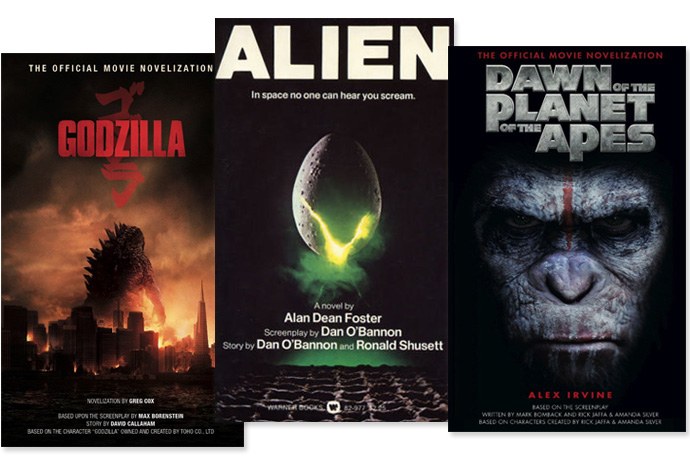Alex Suskind’s article about movie novelizations for Vanity Fair does a great job explaining why these types of books still exist, and makes a good case for why people should still read them!

Yes, People Still Read Movie Novelizations . . . And Write Them, Too
Studio interference, zero royalties, a lack of acclaim. Adapting books based on movies can be thankless work, but the authors who write them deserve your respect.
This past June, The New York Times Best Seller List for mass-market paperbacks featured an outlier among its usual list of suspects. After Inferno by Dan Brown and several books in George R.R. Martin’s A Song of Fire and Ice series, sat a book adaptation of the blockbuster film Godzilla, written by Greg Cox.
Cox’s book is what’s known in the business as a movie “novelization.” The term means exactly what you think it does: it’s a novel based on a film, one fleshed out with a greater attention to character backstory and more descriptive action sequences. If you are unfamiliar with the world of novelizations, your immediate reaction to their existence is likely one of incredulity. To quote my mother during a recent phone conversation we had on the subject, “People buy these books?” Yes, Mom, they do. (Apparently, she did not remember purchasing the novelization of Home Alone by Todd Strasser for me when I was a kid.) Not every novelization is a hit like Godzilla, of course, nor is it a growing part of the book industry. As studios have made bigger bets on a smaller number of films, the quantity of novelizations produced annually has decreased. But Hollywood hasn’t dropped them completely.
Read the full article on Vanity Fair

